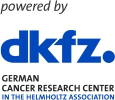Speaker
Description
Objective:
Cancer-related fatigue is one of the most common burdens of cancer patients. To date, most studies focused on fatigue during or after cancer treatment. However, investigating pretreatment fatigue may identify underlying factors beyond cancer therapy and enable timely fatigue management.
Methods: 232 breast cancer patients and 41 healthy women were recruited via the NCT Heidelberg as part of the CogniFit study. Fatigue (EORTC QLQ-FA12), quality of life related functioning and symptoms (EORTC QLQ-C30), anxiety (STAI), depression (CESD-R), and sleep problems (PSQI) were assessed before start of any therapy. Clinically relevant fatigue was defined based on thresholds of clinical importance (TCI) for C30 fatigue scores. Descriptive and linear regression analyses, as well as logistic regression models adjusted for sociodemographic factors, were performed.
Results: Patients scored significantly higher in physical, emotional and total fatigue. 49% of patients reported clinically relevant fatigue before treatment. Relevant fatigue was associated with being younger, being obese, having low education, or low social support. Higher scores in depression and anxiety, worse sleep quality and health status and poorer functioning were associated with an increased likelihood of scoring above the TCI of fatigue (all p<.001).
Conclusion: Many patients experience clinically relevant fatigue prior to therapy initiation, primarily influenced by psychosocial factors. Early screening and supportive interventions for fatigue seem to be important even before start of cancer treatment.
| Research type | Clinical research |
|---|

